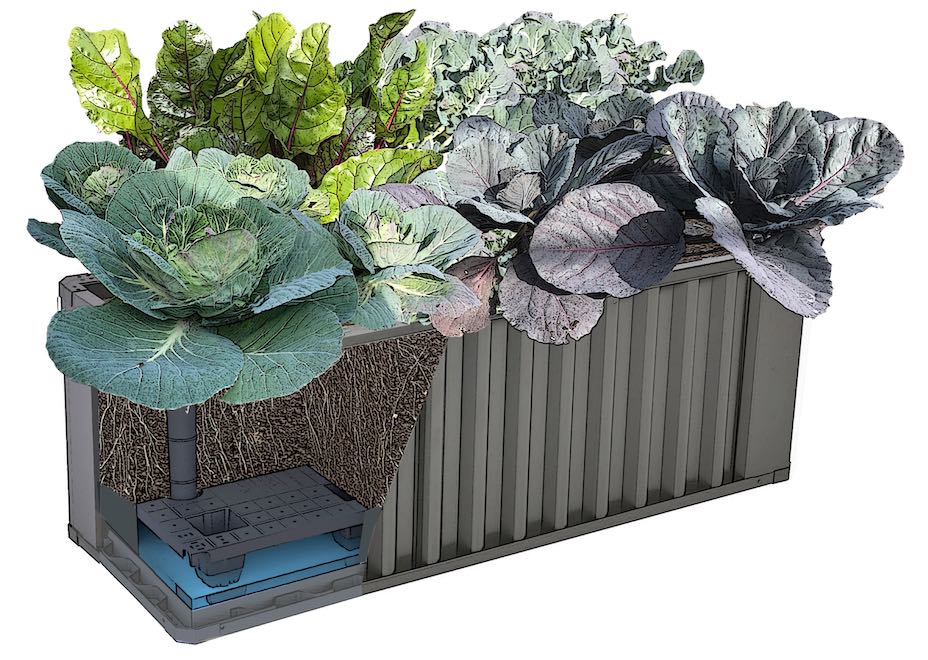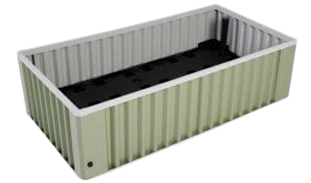Corporate Gardens Cultivate Connections
The concept of corporate community gardens is one that transcends the boundaries of traditional office spaces.
In an era where stress and disconnection are becoming increasingly prevalent in the workplace, fostering a sense of community and well-being has never been more important. These miniature green oases have the potential to not only beautify the workspace but also foster employee well-being, encourage collaboration, and promote sustainability.
Benefits for Employee Wellbeing
As concrete jungles continue to dominate the urban landscape, the need for green spaces is more pressing than ever. Office community gardens, also known as workplace or corporate gardens, offer a creative solution by transforming underutilised spaces into vibrant pockets of nature. These gardens can range from small indoor setups to expansive outdoor plots, depending on the available space and resources.
The soothing presence of nature has been proven to reduce stress and anxiety. Office community gardens provide employees with a tranquil space to escape from the demands of their tasks and recharge their mental batteries. Research indicates that exposure to nature can enhance cognitive function and creativity. Having access to a garden during breaks can boost employees’ problem-solving abilities and productivity levels. Tending to a garden involves physical activity, which can counteract the sedentary nature of office work. This added movement contributes to better overall health and reduces the risk of lifestyle-related diseases.

Fostering Community and Collaboration
Office community gardens require collaboration among employees to maintain and nurture the plants. This shared responsibility encourages teamwork, communication, and a sense of camaraderie among colleagues. Corporate gardens provide a neutral and relaxed environment for employees to engage in informal conversations. These interactions can lead to the exchange of ideas and knowledge, fostering cross-departmental collaboration.
Gardening workshops, planting events, and harvest celebrations offer opportunities for team-building activities that go beyond the usual office setting, strengthening relationships among coworkers.
Promoting Sustainability and Environmental Awareness
Workplace gardens align with sustainable practices by reducing carbon footprints and promoting eco-friendly behaviours. These gardens can serve as educational platforms, inspiring employees to adopt greener habits both in and out of the workplace./p>
Office gardens can host a variety of plants, attracting pollinators and contributing to local biodiversity. This ecological diversity has far-reaching benefits for the environment and the ecosystem.
Looking at the history of office community gardens in the United States, where these types of gardens have been most prominent, we see 2 main themes – of environmental awareness and the mental health benefits that nature and communal spaces can bring to the workplace. While the concept of workplace gardens is relatively modern, it has deep historical roots in the broader movements of urbanisation, environmental consciousness, and changing workplace dynamics.
Here’s a brief overview of the history.
The early 20th century saw a surge in urbanisation, as people moved to cities in search of employment. As office buildings sprung up in city centres, the need for green spaces became apparent. Vacant lots, rooftops, and even windowsills were transformed into small gardens and green spaces, providing employees with a breath of fresh air and a connection to nature.
The concept of “victory gardens” emerged during World War I and was revitalised during World War II. These gardens encouraged citizens to grow their own fruits and vegetables, easing the strain on the food supply chain. Offices and businesses also participated, converting unused spaces into gardens to support the war effort. These early instances laid the foundation for the idea of utilising office spaces for communal gardening. ng their work hours.

Environmental Movement paves way for Corporate Gardens
The environmental movement of the 1970s brought attention to the importance of sustainable practices and green living. This decade marked a shift in consciousness towards nature and the planet’s well-being. The concept of workplace gardens began to gain traction as companies sought ways to align with the emerging environmental consciousness.
Employee well-being and work-life balance became the HR themes in the last 2 decades of the 20th century. As stress-related health issues became a concern, companies began exploring ways to create healthier and more holistic work environments. This period marked the inclusion of indoor plants and small gardens within office spaces, aiming to improve air quality and employee morale.
The early 2000s brought a renewed focus on collaboration and team-building within workplaces. Office community gardens became platforms for employees to engage in shared activities, fostering a sense of teamwork and community beyond the cubicles. Gardening events and workshops became popular team-building activities, promoting interactions among colleagues.
In recent years, the sustainable business movement has gained momentum with companies becoming increasingly aware of their environmental impact and seeking ways to integrate eco-friendly practices into their operations. In the US corporate gardens have become a workplace example for companies wanting to showcase their commitment to sustainability while providing employees with a healthier and more engaging work environment.
Recognising the importance of fostering creativity, reducing stress, and creating spaces that inspire collaboration, many modern tech companies have embraced office community gardens. Google, for instance, is known for its rooftop gardens and green spaces at various lovsyions.
Corporate gardens are more than just spaces filled with plants. They symbolise a holistic approach to workspaces that prioritise employee well-being, collaboration, and environmental stewardship. By embracing this innovative concept, businesses can create an atmosphere that promotes mental health, boosts productivity, and fosters a sense of belonging among employees. A new era of workplace culture is emerging. It is one that is deeply rooted in the values of connection and sustainability.

style=”font-weight: 400;”>
WaterUps for Indoor and Outdoor Corporate Gardens
Our wicking solutions have been proven to increase plant resilience, growth and yield by at least 30%, ensuring gardens live on. As well as enabling productive food gardens, they support ornamental gardens and most plant species allowing companies to create lush corporate gardens which have been found to lift employee engagement and performance.
Learn how Wicking works HERE
Browse our SHOP

With thanks to photographers for images: Bence Balla Schottner, Katya Ross, Markus Spicke and Toa Heftiba.





